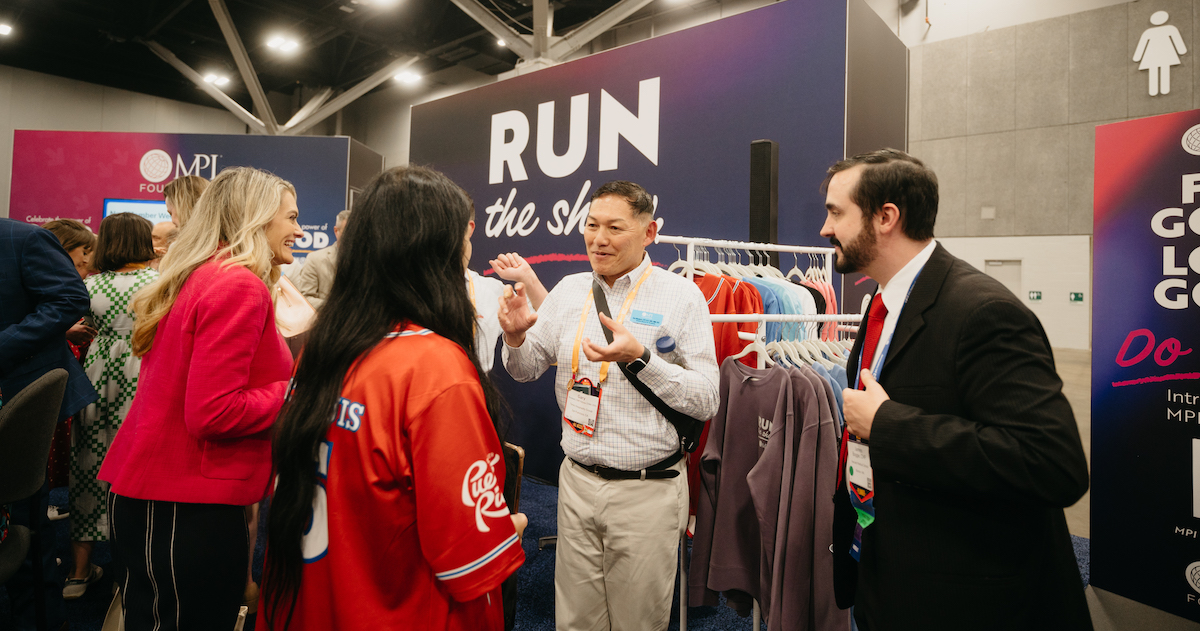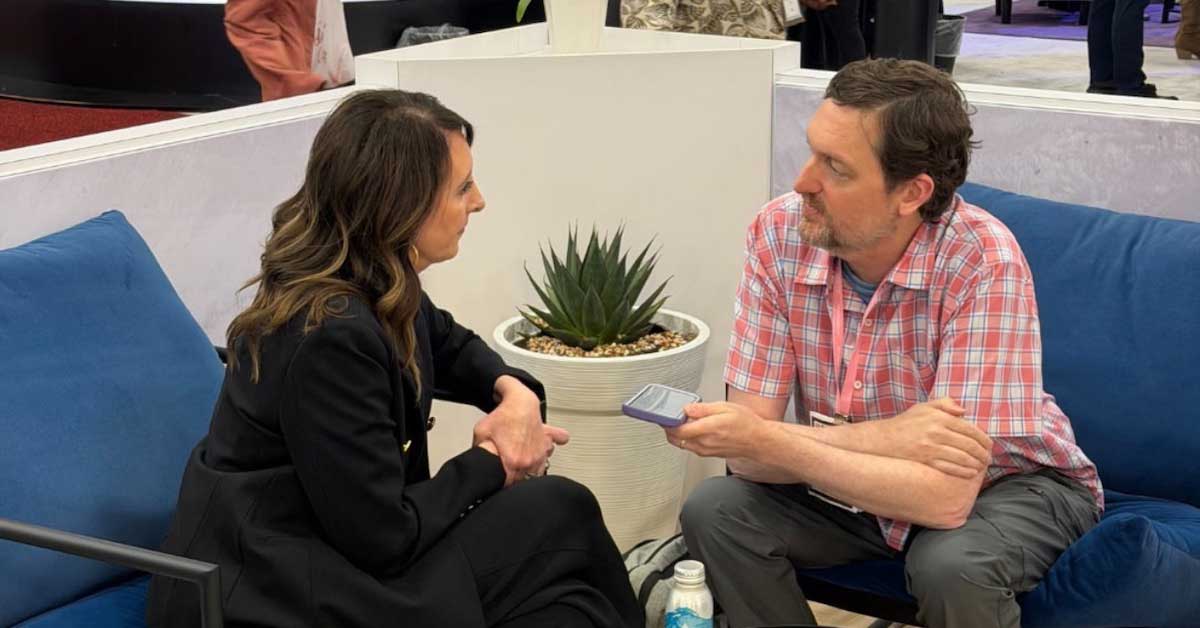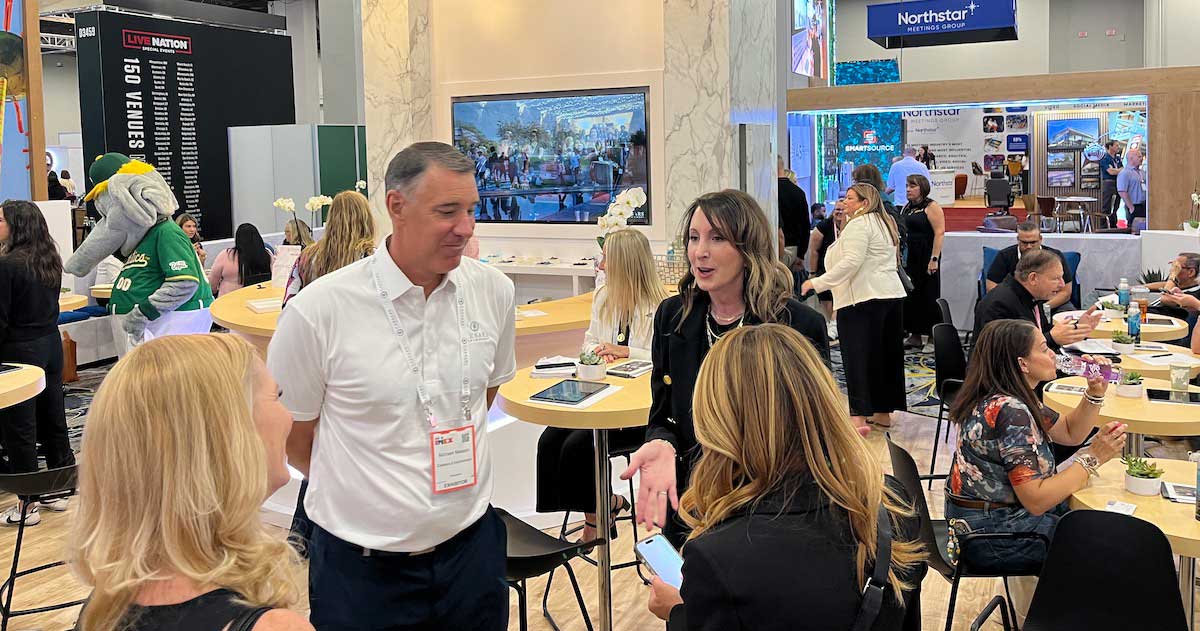Doug Heath, CMP, a charter member of MPI who served as the association’s first full-time CEO and facilitated the organization’s move to Dallas, has died. He was 77.
Heath, who joined MPI in 1972, died unexpectedly Nov. 20, following heart surgery in Orlando.
Heath, CMP, a 48-year member of MPI, was one of the 150 charter members in 1972. A decade later, in 1982, he was honored as Planner of the Year and later that year was named executive vice president and the first full-time CEO of MPI.
He left MPI in 1992, but remained actively involved through this year, serving on the Diversity & Inclusion Committee, which was recognized at the World Education Congress in November with the Chair’s Award. He recently completed a 3,400-plus-word timeline of MPI’s history to help the association prepare for its 50th anniversary in 2022.
“It’s something he never let go of,” said Kathy, his wife of 52 years. “To him, MPI was a lifetime goal. It was a zeal he had, even when he got involved with the diversity committee. It dovetailed with the world today, with all the division. Doug struggled with wanting to do more and he enjoyed doing it. He was so glad to have that opportunity to participate again.”
Their daughter, Amy Kathyrn Rounsavell, said her father’s time at MPI was one of “his proudest memories. He was so committed and would say there was so much potential there and within him, too.”
Son Christopher Heath added that “MPI for him was there at a time when it needed him, and he needed MPI. They both grew a lot.”
.jpg?sfvrsn=802bbe5a_0)
Heath, who was born in Lansing, Mich., was working at the Palmer House Hotel in Chicago when he first started working with meeting planners. He then joined AICPA, the American Institute of CPAs, where he was meeting director. He was in his late 20s when he became involved with a fledging association that would become MPI.
“What I recall when he got involved, he was excited about the possibility of making (meeting planning) more of a profession,” Kathy Heath said. “He wanted the planners, the vendors and supplies to be working together more. He also had a big focus on education.”
Marion Kershner, MPI’s first president, retired 1982, and Heath was hired as executive vice president and as the organization’s first full-time CEO. MPI had been operating from Kershner’s basement in Middletown, Ohio, and was searching for a new headquarters. MPI settled on Dallas and Heath played a major role in the move to the city’s Infomart.
Heath, who was elected chair of the Joint Industry Council in 1990, would often bring his family with him on business trips, and they recalled memories of many special moments on those trips. Heath left MPI in 1992 and joined Promotional Products Association International as vice president of finance and administrative services.
“I love what the founders did, and Marion Kershner, creating the organization out of thin air,” said longtime member Nancy Morrell-Swanson, a former chair of MPI’s Global Board of Trustees. “But when Doug stepped in, he put the framework around it, made it a true association, gave it structure and really did grow it. He took it from a really good baby and grew it into something that became the root of what MPI is now.”
Heath’s family said he was always passionate about education and would go on to complete his bachelor’s and master’s degrees, and later taught at the University of North Texas from 1998-2002. He also started his own company, GCI Promotions, which he continued to operate up until his death.
His family said he received a pacemaker in March and needed additional surgery, and died following complications.
“It is with great sadness I hear the news of the passing of Douglas Heath, who had such an instrumental impact on the early growth and success of MPI,” said Paul Van Deventer, president and CEO of MPI. “His value to the organization far outlasted his tenure as CEO, and most recently included the critical role of volunteer chief historian, helping us track and document the first days, months and years of our association. As we approach our 50th anniversary, Doug’s legacy and impact on not only MPI but on the profession of meetings will continue to be not only acknowledged but celebrated.”
Zoe Moore, co-chair of MPI’s Diversity & Inclusion Committee, said Heath was the group’s “historian” and was working on an extensive timeline to show the journey of diversity, equity and inclusion through MPI's history. She said she and Heath exchanged emails just a few weeks ago.
“He expressed interest in wanting to be more involved and I assured him that we’d give him more tasks, but that his focus on developing such an important resource was key to forward progress,” she said. “He gave us so much insight when he told stories about MPI and he didn’t hold back. Doug wanted accountability and he wanted to make sure that those who don’t yet fully grasp the value of DEI are the professionals that hear the message. He was committed to actionable investment of time, resources and privilege.”
Jessie States, CMP, CMM, director of the MPI Academy, also worked with Heath and said that in documenting the history of MPI, he “was diligent in incorporating the early efforts of MPI in creating and advocating a diverse and inclusive industry. Doug was a storyteller at heart, sharing dozens of often comical stories of the trials and tribulations of a young association that will live long in our industry’s lore. I cannot thank him and his family enough for their continued contributions to our profession.”
Jonathan Howe, who served as MPI’s legal counsel from 1974-2020, said Heath “was very instrumental in moving MPI forward in the 70s and 80s.”
Heath was recently featured on the MPI Greater Orlando Chapter’s Facebook page in May where he was asked to share how he got involved with MPI and what it means to him.
“I was fortunate to be one of its Charter Members when MPI was chartered in 1972,” he wrote. “I remained involved, leading learning sessions, selected as Planner of the Year, being elected to the board of directors in 1982, but never served, as I accepted the position of first full-time, paid CEO of MPI.”
He said some of the accomplishments during his years of heading MPI included moving the headquarters to Dallas from Middletown, Ohio, establishing the MPI Foundation, serving as a member of the CLC committee that designed the CMP program, changing the monthly newsletter to a four-color monthly magazine, extending international chapter presence in Europe and expanding relations internationally.
“As I think you can see, my roots run deep, and I’m proud to say I’m a member of such a great organization that continues to grow and serve.”
Heath this year was an active member of the Diversity & Inclusion Committee and just last month had shared insight on the work of the group and its importance to the industry.
“Many organizations such as MPI are very diverse, but are they inclusive?” he told The Meeting Professional. “The one thing I would like to change is for us to step out of our comfort zone and be more open to accepting, learning and understanding other people’s differences.
“There is an old saying, ‘What you’re not up on, you’re down on.’ It’s only by reaching out and embracing the differences in each other that we become inclusive. Those differences can make a company/organization better with new perspectives, talents and sensitivity.”
Marta Hayden, the first woman to be MPI president, knew Heath well.
“You couldn’t have found a more enthusiastic person when it came to MPI then Doug,” she said. “He was committed to grow people and get others involved. He shared the ‘spotlight’ and had others involved in the decision making of the organization. When he became the executive director, he helped shift the organization from volunteer-driven to more a staff guidance association.”
She recalled two instances in which Heath demonstrated leadership under stress.
The first was in 1987, when Hayden said MPI was working to put the “I” into MPI. She said MPI had an international symposium scheduled for London that year and Terry Waite, an envoy for the Church of England, was scheduled to speak at the symposium.
Waite was kidnapped while trying to negotiate for the release of hostages shortly before the symposium was to begin. MPI’s Executive Committee was either in route or already in London and Heath “went into warp speed to get a replacement and have the symposium go off without a hitch,” Hayden said. “There were lots of media covering the conference since Terry Waite was a world-famous figure.”
The second moment that stands out for Hayden was when MPI’s 16th conference was to be the first held in Seattle at the Washington State Convention and Trade Center.
Construction was running behind and there were doubts if the show floor area would be completed, Hayden said. While other meeting areas would probably be ready in time, the organization had to decide to risk going ahead or engage another venue for the trade show.
“Doug passionately shared the vision of MPI and the potential economic impact of hosting MPI in Seattle and the possibilities of future economic benefit to the area and renewed the energy and commitment to get the center opened,” she said.
Heath and his wife Kathy had two children: Amy Kathryn Rounsavell, 43, who with husband Brad have one daughter, Kathryn; son Christopher, 42, and his wife Moriah have two sons, Raymond and Benjamin. They lived in Dallas for nearly 30 years until moving to Orlando in 2014.
The family is asking that any donations be made in Doug Heath’s name to Second Harvest Food Bank of Central Florida.
WHAT OTHERS ARE SAYING
Joan Eisenstodt, Eisenstodt Associates, former member of the MPI International Board of Directors:
“When Doug became the CEO of MPI, I was moving up in leadership in the Potomac Chapter. One of my earliest elected offices was as our chapter’s representative to the MPI Board of Directors. In that role, I interacted much more with Doug and got to know him. I, unsurprisingly, have always been one to speak up when I see inequities. Oh, there were lots of issues about which we talked and counter-talked!
Three of many best memories:
What I saw at the chapter and international levels were many women in non-leadership roles—albeit, many served on the board from the chapters. Talking with Doug about MPI’s representation to the then CLC (Convention Liaison Council, now EIC), I suggested, strongly, that there were all men representing an organization that appeared to have many women. I remember Doug calling me and saying, ‘Fine, then you will, with Weldon Webb, be one of our three delegates to the CLC Board. I expect you to be outspoken on our behalf and on behalf of women in the industry.’ At my first CLC Board meeting, I spoke up and at the first break and had an encounter with a man, older and taller than I, who patted me on the head and said, ‘Just wait until you’re older, honey; you’ll understand how the industry works.’ Reported back to Doug. He laughed when I told him the story and said, ‘Good for you,’ because I’d countered that notion!
In 2004, I was told I’d be inducted into the (then CIC) Hall of Leaders. I called my husband first and a call to Doug was the second call to tell him, to thank him for promoting me into leadership roles and for being my friend and to invite him to come to the induction dinner. I couldn’t imagine the evening without him.
In our later years, me still working in the industry, I was in regular contact with Doug to talk about inclusion, politics, life and how our industry needed to do much more to be inclusive. I was thrilled that he and Zoe Moore connected and he was able to tell her more about MPI’s and the industry’s history.
Kathy lost a husband; Chris and Amy a dad. I’ve lost a mentor and friend who, even when I served on the MPI Board that met in Switzerland years ago, had to make a tough decision to ask Doug to step down as MPI’s CEO. He never held a grudge; he always cared about me and supported my work and professionalism. My heart hurts.”
Nancy Morrell-Swanson, former chair of MPI’s Global Board of Trustees:
“He was always happy, positive, smiling. I found him a delight to always be around. He was great to work with, very supportive. He put his mark on MPI for sure and launched it into the next stage. He added more credibility for people to have faith that this will help their careers.”
Jonathan Howe, MPI’s legal counsel from 1974-2020:
“Doug was pretty good as mastering the ability to keep people somewhat in line. He made things more manageable. Doug was very innovative and was the first to push for international conferences. He really had the insight to move MPI along, fight the political wars and keep the train on the tracks. He ate, drank and slept MPI, but his ego was never what would lead him.”
John Ehlenfeldt, member of the MPI International Board of Directors and liaison to the Diversity & Inclusion Committee:
“He gave us this really robust history of MPI and the early years. Told us some things we never knew. His engagement was always there. While he wasn’t one of the chairs, he helped lead one of our subcommittees. He was active all the way and that’s how we’d all like to be.”
Stephen Powell, MPI Charter Member and organizer of the Rocky Mountain Chapter:
In 1983, he was the youngest person and first supplier to serve as MPI's president.
“It’s a sad day and I mourn that loss of our dear friend. Doug and I did not keep up regular calls in the latter years, but when we did talk, we picked right up where we left off. Doug and I intersected at an important time in each of our lives. Very early on during his days at AICPA, I encouraged him to look at the chief paid position at MPI as we knew that Marion was going to retire. We even had coaching sessions on the interview. As you know, Doug landed the position and became the first full-time chief paid staff for MPI. He helped move the MPI offices out of Marion Kershner's basement. The new offices for MPI was a portion of a funeral home in Middleton, Ohio. There was a separate entrance for MPI, thank goodness.
“I believe that I was Doug’s first full-term president (1983-84). I went to Middletown on many occasions as president-elect and president to begin the work on the ‘new’ MPI. Doug and I began lengthy work on a long-term strategy plan for the organization to take us into the future, which included moving the headquarters somewhere. I can remember long days in office to develop the plan for presentation to the executive committee and then the board. During that time, we would stop and watch caskets from our conference room going out of the building for services. We knew we had to move from there. During that time, I became a frequent guest of the Heath household for dinner. They were so welcoming, and I got to know Kathy, Amy and Christopher.
“We worked together on the organization's move to InfoMart in Dallas, but all the credit goes to the influence of Charlotte St. Martin (with Loews at the time) and Trammel Crow (international real estate developer). As I recall MPI even got free rent for a few years. And, at about that time, I was amid a divorce and custody issue. Kathy and Doug were a rock for me at this time and listened to my story as well as provide solid guidance on the divorce/custody. I am forever grateful.
“Doug and his family are an important part of my life, and he has left a place on my heart. I love him and shall miss him. He has helped so many people in his world. I am honored to be one of those recipients. Goodbye dear friend, but always remembered.”
Rod Abraham, MPI Charter Member and a two-time chair of MPI’s Global Board of Trustees:
“My friendship with Doug predates the formation of MPI. We met and immediately became friends at a conference called ‘World Meeting Planners Congress.’ Hah, there were about 25 of us in attendance. One night, after dinner, a group of us, including Doug and Jimmie Jones, talked about the need for more opportunities for networking and education. About two years later, MPI was formed and I, like Doug, became ‘Charter Members.’ We maintained our friendship and in 1980, when I chaired the MPI Annual Meeting in Philadelphia, I appointed Doug to the planning committee. He became my go-to guy; having access to the resources of the AICPA, he was invaluable. Sometime, way back, he began to call me his ‘rabbi,’ (think I was the first to grow a beard). When I last saw Doug and Kathy about five-six years ago, we embraced and his first words were ‘my rabbi.’”
.jpg?sfvrsn=6c28be5a_0)






